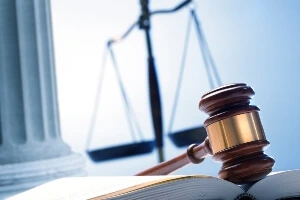A deposition, which occurs during the discovery phase of a personal injury case, requires injured victims to answer questions under oath. During this formal questioning, the attorneys for both sides may learn information that could significantly impact the outcome of your Milwaukee personal injury case.

At PKSD, our experienced Milwaukee personal injury attorneys thoroughly prepare our clients if their case end court and they are required to give a depositions. We stand by your side throughout this process, ensuring your testimony effectively supports your case while avoiding risks that could undermine your claim. You pay no upfront costs or fees to engage our services. We only get paid these costs if we win your case.
Call PKSD to discuss your situation in a free case review today: 414-333-3333
Why Do I Need to Give a Deposition for My Milwaukee Injury Claim?
Your deposition serves as an information gathering tool for all parties involved in your case. Insurance companies and defense attorneys need to hear your testimony to understand your version of events and the extent of your injuries. The outcome of this deposition is that both sides will gain more insight about the impact the accident has had on your life and what may be an appropriate settlement for your losses.
Depositions are taken early on in a case, which helps to preserve your testimony while details are still fresh in your memory. Key details you remember right after an accident may be critical to the outcome of your case. If your trial ends up lasting months or longer, you might forget some of those details.
As the injured victim, participating in a deposition gives you an opportunity to support the legitimacy of your claim and establish a clear record of damages. Clear and accurate testimony supports your claim and your ability to recover fair compensation, often without the need for a lengthy court battle.
How Long Does a Personal Injury Deposition Take in Wisconsin?
The duration of a personal injury deposition typically ranges from two to six hours, depending on the complexity of your case and the number of issues involved. Simple cases with straightforward injuries might conclude in under three hours. If your accident was more complex, involving multiple parties or extensive injuries, it could take significantly longer.
Wisconsin law does not impose strict time limits on depositions, but most attorneys recognize the diminishing returns of excessively long questioning sessions. Your attorney will closely monitor the process to ensure that questions remain relevant. Breaks can be requested as needed to help you maintain focus and composure throughout the process.
Who Will Be Present During My Milwaukee Deposition?
Your deposition includes several participants who fulfill specific roles throughout the proceeding. The following individuals will likely be present during your personal injury deposition:
- Your personal injury attorney will be there to protect your interests and object to improper questions.
- The defense attorney representing the insurance company or defendant will be there to ask you questions.
- A court reporter who records the words spoken to create an official transcript of the deposition.
- The defendant may attend, though this is not always the case.
- Insurance company representatives may sometimes attend to observe the proceedings.
- Additional attorneys representing other parties may be present if your case is complex.
- A videographer will be present as well if your deposition is being recorded visually.
What Questions Should I Expect During My Deposition?
Defense attorneys follow a strategic line of questioning to help them evaluate your claim and identify potential weaknesses in your testimony. The following categories are the most common areas of inquiry you will encounter.
Background Information
Defense attorneys usually begin by asking about your personal history, including your full name, address and date of birth. They may also ask about your education, employment history, and family details. These details establish basic facts while allowing them to assess your communication style and credibility.
Details About the Accident
Attorneys will very likely want to challenge your memory and credibility. To do this, they prepare strategic questions to test the consistency of your account. Your attorney will help to prepare your for questions you may get asked, which may include:
- Questions about the date and time the accident occurred
- The location of the accident
- Weather conditions, if the accident occurred outdoors
- Details you remember leading up to the accident
- What you remember happening right after the incident occurred
Your Injuries and Medical Treatment
You will need to describe all the injuries you sustained in the accident, along with any symptoms you are experiencing. You will also need to provide details of any medical providers who provided treatment, the treatments you received, medications they prescribed -and whether they were helpful. Be prepared to discuss the status of your recovery, including any permanent limitations that may have resulted from your injuries.
Pre-Existing Conditions
Defense attorneys will question any previous injuries, medical conditions, or accidents to determine if they are related to your current injuries. Their goal in this line of questioning is to determine if the incident worsened pre-existing conditions.
How Your Injuries Affect Daily Life
You can expect to get asked about how your injuries affect your daily. These questions may specifically cover how your injuries impact the following:
- Your ability to perform household tasks
- Whether you can participate in social activities or favorite hobbies
- How your personal relationships have been affected by your injuries
When responding to these questions, it is important to be both specific and honest about your limitations.
Employment and Lost Wages
Lost wages and lost income are another key aspect of your losses. You will need to provide details about your employment history, including your job duties, salary, and missed workdays. Another aspect you will need to explain is how your injuries impact your ability to perform your job.
Conversations About the Accident
Defense attorneys will ask you about statements you made to others about the accident. Some examples might include conversations you had with witnesses, phone calls to insurance adjusters, or any posts you made on social media platforms. Consistency between those initial statements and how you respond during your deposition is important to your claim for compensation.
How Should I Prepare for My Personal Injury Deposition?
Your ability to deliver an effective testimony during your personal injury deposition can have a significant outcome on the outcome of your case. Consider these important preparation tips before your scheduled appearance:
- Review accident details thoroughly, including the sequence of events, timing, and specific circumstances.
- Gather medical records from the accident and review them to refresh your memory about treatments, medications, and provider visits.
- Discuss strategy with your personal injury attorney.
- Practice answering questions about your accident, injuries, and recovery process.
- Review relevant documents such as accident reports, medical bills, and correspondence to be sure you remember key details correctly.
- Get adequate rest the night before to ensure mental clarity during questioning.
- Dress professionally in business casual attire to make a positive impression.
- Plan your transportation to arrive at least 15 minutes before the scheduled start time.
- Limit discussions about your case with anyone except your attorney.
- Prepare emotionally for potentially challenging or personal questions from defense attorneys.
Can My Attorney Object During the Deposition Process?
When defense attorneys ask improper questions or use manipulative tactics, your attorney has the power to object to these questions. These objections serve to protect your rights. They also create a clear record of potential issues for later review, and provide guidance about how to approach certain lines of questioning.
Wisconsin deposition rules permit attorneys to raise specific objections regarding form, relevance, privilege, or harassment. That said, you are expected to answer most questions unless they involve private information.
What Defense Tactics Should I Watch Out For?
Defense attorneys employ specific strategies designed to undermine your personal injury claim and lower the value of your claim. Be aware of these common tactics that injury victims frequently encounter during the deposition process:
- Rapid-fire questioning are a tactic they may use to rush your responses and potentially cause contradictions.
- Deliberate silence after your answers to make you feel uncomfortable and provoke you to ramble or provide unnecessary details.
- Friendly demeanor that may cause you to lower your guard and respond with more casual, unfiltered responses.
- Asking the same question in multiple ways to identify holes or inconsistencies in your testimony.
- Compound questions that combine multiple inquiries to confuse your response.
- Absolute statements that pressure you to commit to “never” or “always” scenarios.
- Questions about conversations with your attorney that violate attorney-client privilege.
- Requests for specific distances or speeds to challenge your perception and memory.
- Minimizing your injuries by questioning your pain levels or treatment choices.
- Social media inquiries to uncover potentially contradictory posts about your activities.
How Will My Deposition Performance Impact My Settlement?
Your performance plays a significant role in determining the trajectory and potential value of your personal injury settlement. Insurance adjusters and defense attorneys will analyze your testimony to evaluate your credibility, the strength of your case, and how effectively you may present if your case proceeds to trial.
Strong, truthful deposition testimony that clearly states your injuries, damages, and the circumstances of the accident are key. These types of responses are more likely to motivate insurance companies to offer more favorable settlements and avoid the risk of a courtroom battle. Inconsistent statements, exaggerated claims, or hostile behavior during your deposition have the opposite affect. They can significantly diminish your negotiating leverage and result in reduced settlement offers.
What Role Does My Attorney Play During the Deposition?
Your personal injury attorney fulfills several obligations during your deposition to protect your interests and strengthen your position in settlement negotiations:
- Pre-deposition preparation, including practice sessions and document reviews to ensure you understand what to expect.
- Strategic objections to improper questions or tactics used by defense attorneys.
- Legal guidance regarding which questions might involve privileged information.
- Note-taking to document important statements and develop follow-up strategies.
- Requesting breaks when you need time to collect your thoughts or discuss concerns.
- Monitoring your demeanor and providing subtle cues if your conduct could harm your case.
- Clarifying questions during redirect examination to address any confusion.
- Preventing harassment or intimidation attempts by opposing counsel.
- Ensuring compliance with Wisconsin deposition rules and procedures.
- Post-deposition review to assess how your testimony impacts settlement strategy.
What Happens After I Complete My Deposition?
After your deposition, the court reporter transcribes your testimony into an official written document that becomes available to all parties, typically within two to four weeks. Your attorney will thoroughly review this transcript, identifying strengths and potential weaknesses in your testimony. They will then develop strategic approaches to address any problematic statements that might affect your case.
The end of your deposition is a turning point in your personal injury claim, often prompting settlement discussions as both sides reassess the case based on all testimony gathered. Your PKSD attorney will use this post-deposition period to negotiate aggressively with insurance representatives, present additional evidence supporting your claims, and potentially prepare for mediation or trial if a fair settlement is not made.
Wisconsin-Specific Deposition Rules that Apply to Personal Injury Cases
Personal injury depositions in Wisconsin follow specific procedural rules that differ from those in other states. These Wisconsin-specific regulations govern how depositions are conducted in personal injury cases:
- Seven-hour time limit for standard depositions, unless extended by court order or agreement.
- 30-day notice requirement before scheduling depositions in most circumstances.
- Mandator Direct attorney participation for all parties involved in the litigation process.
- Written transcript production is required unless all parties agree to forgo having an official written record.
- Objection limitations that restrict attorneys to concise statements without lengthy explanations.
- Remote deposition options available with proper notice and technological accommodations.
- Protective orders must available upon request for sensitive medical or financial information.
- “Read and sign” provision allowing deponents, or party who took the deposition, 30 days to review and correct transcript errors.
- Videotaped deposition rules require specific notice and technical compliance.
- Subpoena requirements apply for any non-party witnesses that must follow strict service guidelines.
Contact Our Trusted Firm Today
Your deposition forms a critical foundation for all settlement negotiations and potential trial proceedings related to your case. While the process might seem intimidating, we make sure you understand what to expect so that you are fully prepared for this process.
At PKSD, our we stand with you throughout the legal process. We work tirelessly to protect your rights while building the strongest possible case for maximum compensation. Contact our office today to have an attorney review your case.
Worried about costs? We take injury cases on contingency, which means there are no upfront costs or fees to pay when we represent you.
Need Legal Help? Call Our Trusted Law Firm Today. 414-333-3333





